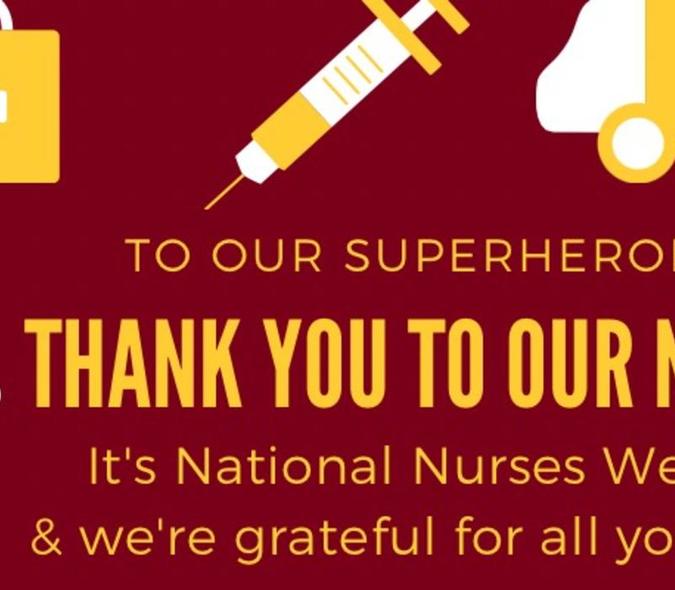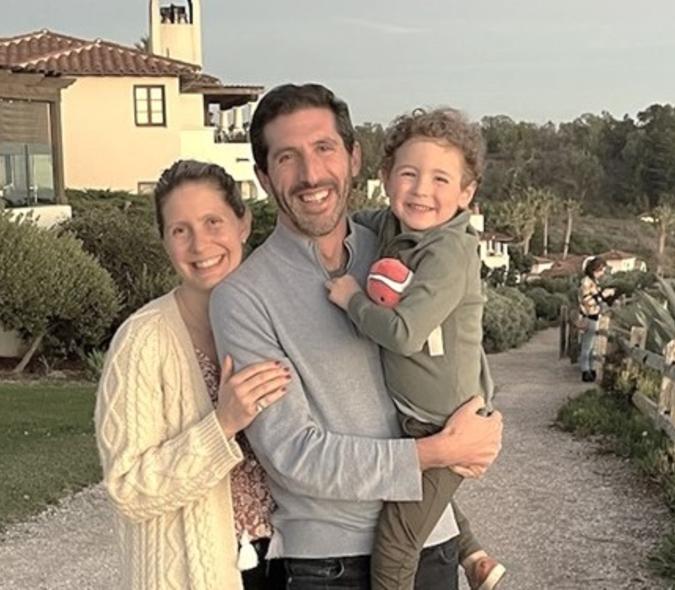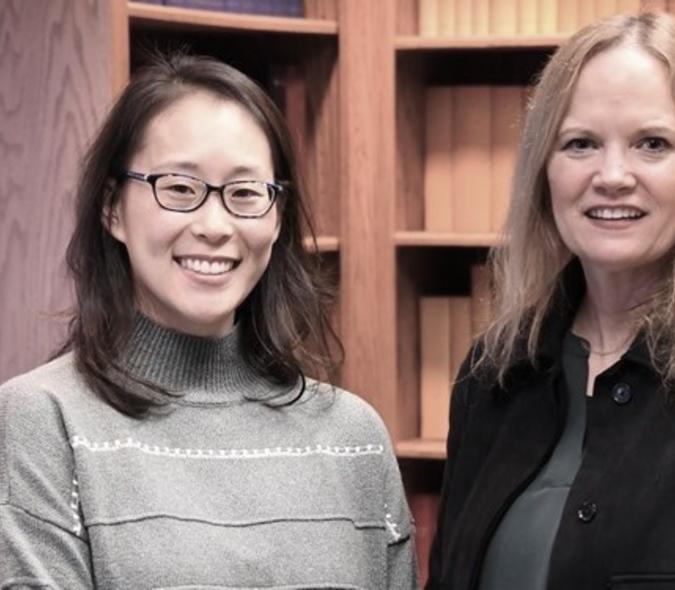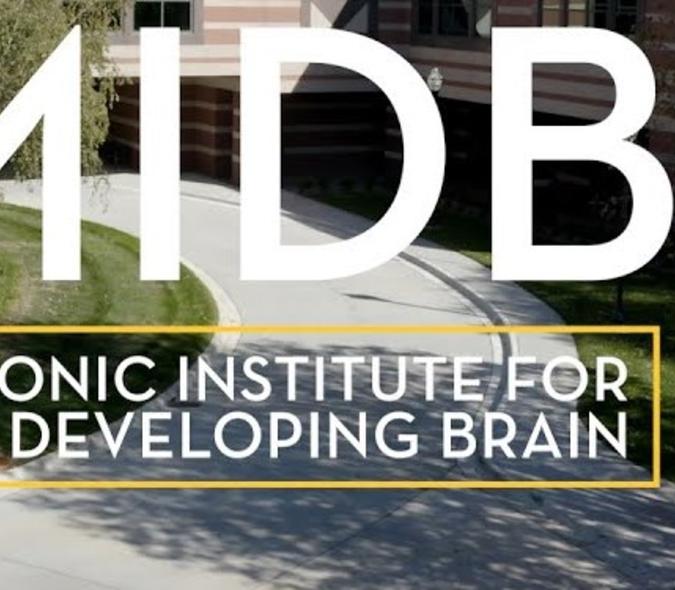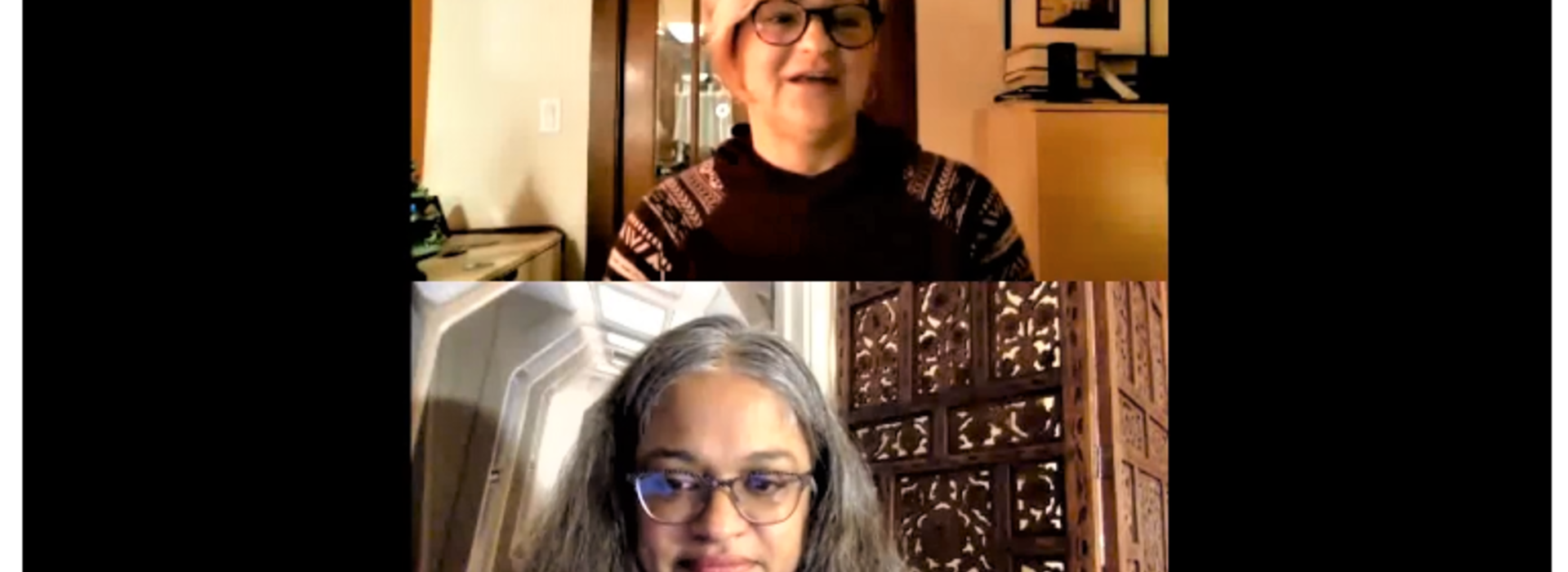
Helping those on the autism spectrum transition to adulthood takes teamwork and planning
Evanston, IL, resident and Development and Communication Director for a local nonprofit, Joanie Ducayet, grew up with a brother who had disabilities. She witnessed the work her parents had to do to ensure that he lived the best life possible. That experience helped prepare her when her two sons, James, 24, and Ethan, 22, who had both been diagnosed with autism spectrum disorder (ASD) early in their lives, needed support in making the transition to adulthood.
Joanie’s work with her sons was spotlighted during a recent CANLab (Converging Approaches to Neurodevelopment) webinar titled, How Can You Prepare? Adolescence to Adulthood with Autism. Suma Jacob, MD, PhD, who co-leads the CANLAB at the U of M with Christine Conelea, PhD, LP, hosted the webinar and helped set the stage for the discussion. Dr. Jacob, who has known Joanie for years, is a child psychiatrist whose practice and research focuses on neurodevelopmental disorders that emerge in early childhood, such as ASD, obsessive compulsive disorder (OCD), tic disorders, and attention deficit hyperactivity disorder.
Similar but different
After being introduced by Dr. Jacob, Joanie acknowledged what while her sons are both on the autism spectrum, they each interact with the world differently. “For James, who also has OCD, the world is sometimes overwhelming. But he loves math and uses numbers to make sense of it,” she said. “Ethan is more gregarious, more flexible. School was a better fit for him.”
After being in segregated classes in elementary school, the boys joined their “neurotypical” classmates in middle school and high school. These experiences helped prepare Ethan and James for the transition to adulthood. “When they moved to the larger school community, they felt more a part of things,” said Joanie. “It's important for their peers to see them, which helped them become known. It helped prepare and lead them into the adult world.”
Community resources
Joanie relied on community resources to prepare her sons for life after school. “We are forever indebted to the first wave of parents,” she said. “They helped set up the programs that my kids took part in. For instance, there was a job mentoring program at their high school and as part of that, James volunteered in the school’s IT department. He treated it like it was a job. That kind of opportunity is key for these kids.”
Those opportunities may not be offered everywhere. While support for crucial early interventions for kids on the autism spectrum is widely available in this country, Dr. Jacob noted that, “We’ve not developed or supported lifelong interventions. It’s a lifespan disorder and as more people are diagnosed, we need additional resources for guiding families through these later ages.”
Center for Independent Futures
Another community organization that Joanie tapped into was Evanston’s Center for Independent Futures, a nonprofit dedicated to helping individuals with disabilities live full and more independent lives. Part of the resources offered through the Center includes a program known as my full life™. It includes a planning process, skills inventory, and comprehensive life skills curriculum.
Joanie’s is a cautionary tale, however, when it came to helping her sons actually plan their transition to adulthood after they graduated from high school. “I wanted to make a 10-year plan with them,” she said. “I told them, ‘By the time you're 30, we need to understand how you’re going to live independently.’ I could see the anxiety building immediately in James.”
Thanks to one of the professionals that Joanie was working with, she was advised, “to take a deep breath and see what they can do first. I almost assumed their development was static at 15. By the time they were in their early 20s, however, they were completely different. I learned to let them guide me. My sons don't want me to run their lives. I can provide support while following their leads.”
Hard to let go
That kind of letting go is challenging for parents of kids with disabilities. “Parents often want to protect their children from the world’s challenges,” said Dr. Jacob. “It’s helpful to find other parents who have gone through different developmental phases, especially parents of adults with ASD.”
Planning for where her sons would live – they decided to live together – was just one of the things that Joanie helped them with. There were also legal issues to consider. “When your child reaches the age of 18, you are no longer their legal guardian,” she said. “We attended meetings through ARC specifically geared toward the pros and cons of guardianship. We needed to understand what it meant. We decided to go without it at first and chose to institute power of attorney instead.”
There were other difficult discussions that Joanie had with her sons – about sexuality, relationships, and whether they would drive (living in a community with ample public transportation, they chose not to).
Learning to trust professionals as resources
Perhaps the most important lesson that Joanie learned through this process was to trust the professionals with whom she was working. “At times, the weight of everything that my kids needed as adults was on my shoulders,” she said. “It was frightening. But my kids ran their own IEP [Individual Education Plan] conferences. They learned to do their own PowerPoint presentations. They couldn't just wing it. Ethan’s counselor was also very well versed about different kinds of jobs. That helped me see that I didn't have to do it all myself. The professionals saw my kids differently and I learned that was okay. As I counted on other people to help them, it started to become a team effort.”
Speaking of lessons, “Many people need to learn how to help those with ASD transition to adulthood,” said Dr. Jacob. “ASD is too often labeled as just a ‘child’ disorder. We need to train adult practitioners to work with individuals as adults. Over a handful of years, Minnesota has begun to provide more funding for building programs across lifespan needs, but those kinds of programs need to be built everywhere for a growing number of individuals and families. There is so much work that needs to be done.”
Learn more about the CANLab and its ASD research opportunities.
